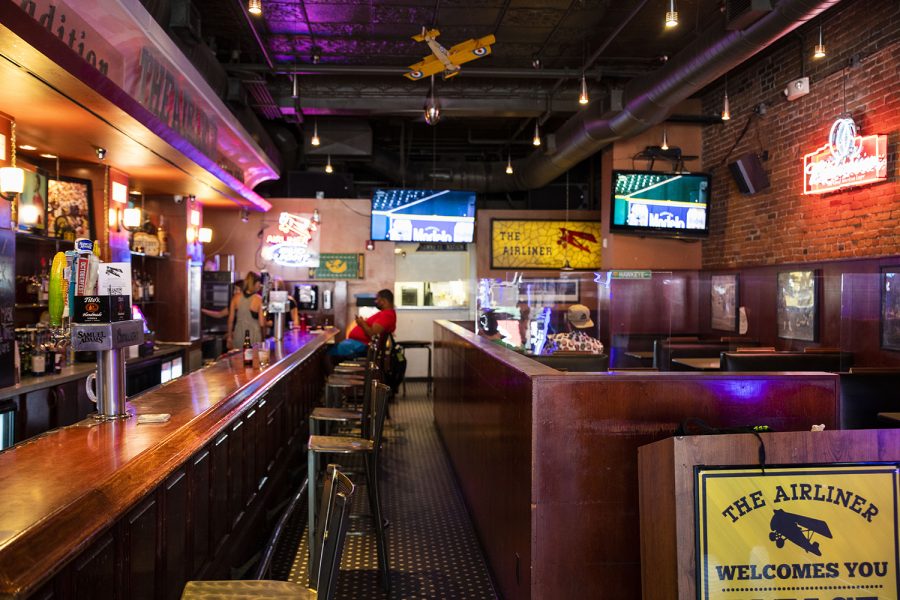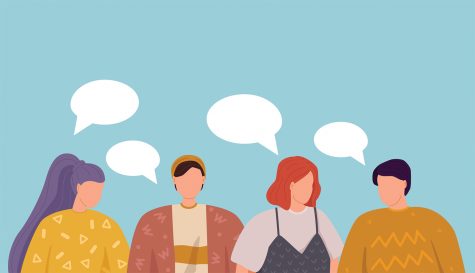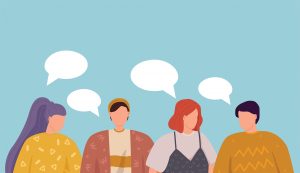Opinion | Closing the bars bandages one wound while opening another
The sudden proclamation of shutdown from the government could harm the interest of store owners, but the government does not plan to make up for the loss.
The Airliner, 22 S Clinton St. As seen on Aug. 27, 2020.
September 3, 2020
The total number of positive COVID-19 cases has broken past 6 million nationally, according to the data provided by the CDC. The U.S. is facing a dangerous situation that is badly in need of changes. On August 27, Gov. Kim Reynolds announced that all bars, night clubs, and breweries in Iowa stop serving alcohol past 10 p.m.
While this may stem public transmission, this declaration unfairly harms owners and employees of these businesses.
It may seem reasonable that the government implements such a policy because of the severity of COVID-19. Especially after the reopening of universities and schools, there had been more than 500 students cases reported positive until last Friday in the University of Iowa, and on August 27, officials had confirmed 3,095 positive cases within Johnson County.
Despite the worsened situation, many young people still hang around with their friends among bars and nightclubs, without wearing masks. This policy would be useful for taking the situation under control.
However, the first issue raised is the concern about personal property.
Our American freedoms are valued as our most inviolable rights of every citizen. One such freedom is the right to property. However, in the current situation, many store owners are forced to relinquish the right to use their personal property. The government takes this “special period” as an excuse for violating inviolable rights that grants the protection of personal security.
The government should not have so much power in its hands. Ideally just offer reasonable suggestions, such as those the WHO recommends: everyone is not allowed to exchange drinks, follow social distance rules, wear masks and sanitize your hands frequently.
If any store violates these rules, then harsh penalties and shutdown are required.
However, because of the rising severity of the immediate emergency, people have to sacrifice a certain degree of freedom for protecting personal safety — such as shutting down businesses.
The government should also make up for their sacrifice, rather than forcefully shutting down stores without time for preparation. Some people don’t have large savings and some people are still relying on their salary for rent.
With the new national moratorium, people who are unable to pay their rent will not face eviction until the end of 2020. But that rent is still due at some point – and a lot of people won’t be able to pay up if they’re out of work. Chefs, bartenders, servers – with every closed and altered business, that’s more people who can miss rent.
While the state has created the Iowa Eviction and Foreclosure Prevention Program to help those who are unable to pay rent due to COVID-19-related loss of income, there are several problems with it.
In order to receive aid, an eligible household must have one or more non-students living in it. So to those of you who have roommates also in school? You’re out of luck here.
And what if the assistance still can’t cover rent? After all, the IEFPP has limited funds allocated to it — it cannot help everyone.
It’s understandable that the government wants to resolve the situation, but it cannot harm the people it is meant to serve in the process of that. This could affect thousands of peoples’ jobs, according to the Iowa Restaurant Association.
If Iowa deems it necessary to force these businesses to close early and impede their actions, then it is necessary to compensate affected parties for that closure, regardless of if it’s a business or a person.
Columns reflect the opinions of the authors and are not necessarily those of the Editorial Board, The Daily Iowan, or other organizations in which the author may be involved.
















